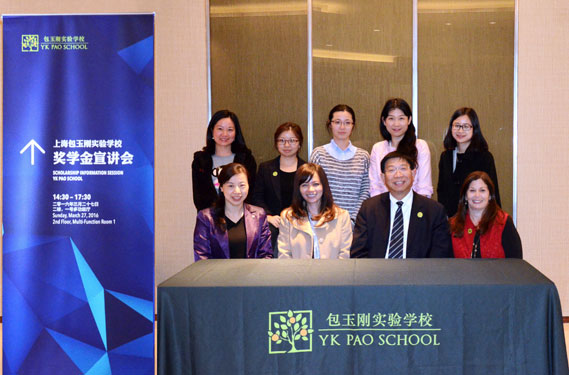
Fast approaching its tenth anniversary, Pao School is both an international Chinese school and the result of a unique ingenuity, an enduring determination, persistence and spirit, as well as the constant need for exploration and thinking, and perseverance. Our founder, Mr Philip Sohmen, once said: 'the highest praise any institution can earn is to be imitated.' In the face of an endless stream of imitators, he remains calm. Where does this confidence come from?
In early March, six of our colleagues from Primary and Secondary Division visited Taiwan with a mission to investigate how Pao School's educational programme can bring Chinese tradition to life in an internationalised school environment and how students can find room for innovation while simultaneously learning about Chinese tradition. We learned much from our visit.
While visiting a school, we observed as students transplanted rice seedlings in the fields. The process not only helped students learn about the cycle of life and to appreciate the time and energy required to cultivate food resources. More importantly, it was essential to the students’ development of an attitude towards life: The transplanting process is a continual process of walking backwards as you sow new seeds, creating new life. Developing and innovating requires both persistence and flexibility, even if you need to step back once in a while to give yourself room to grow.
We also had the pleasure of watching Year 1 students create their own Chinese ink paintings. Their resulting work expressed not only their sincerity but also their simplistic world view. The essence of Chinese ink paintings lies also in the use of blank space, the style of the painting as well as its relationship with objects, all of which are equally if not more important as the painted areas themselves. This is the way education should be - while we often consider whether we've given our students enough to do and learn, we must also give them enough space to grow and express themselves.
In line with the mission of Pao School, our team used our senses to explore and understand Chinese culture, arriving at some simple conclusions:
• Chinese culture is everywhere, from the basic necessities of life to taste the tea.
• Chinese culture is the combination of knowledge and practice. It is found in books, as well as our actions.
• Chinese culture is also a value system, and reveals to us our relationship with other individuals, nature as well as the world.
• Chinese culture belongs to the world and the future. Only a deep understanding of the Chinese language can promote an international perspective.
It's difficult to use one existing theory to describe the progress Pao School has made thus far, but I will make a bold attempt: Borrowing concepts from Silicon Valley venture Godfather Peter Thiel's thoughts on future progress, Pao School's years of growth and development is not a '1 to N' - copying others and simply adding more of what's already familiar). Rather, it is a '0 to 1' - the forging of a new path.
I now realise that Mr Philip Sohmen's confidence lies in the fact that same spirit that founded Pao School has remained unchanged. Pao School's journey is a 0 to 1, moving from the initial stages of exploration and innovation to the stability we enjoy today.
Li Jing
Secretary General